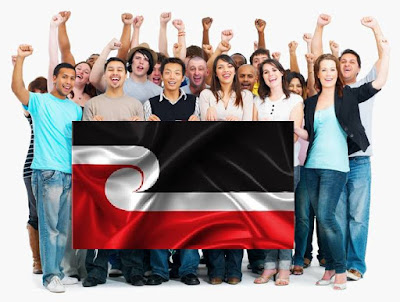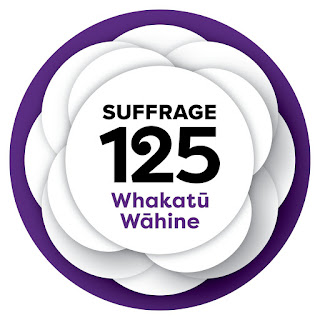We are not the same: resisting assimilation and imperialist feminisms
There is an assumption in western feminist thought that there is some kind of 'universal womanhood'; that we as women have the same experiences of sexism, misogyny and patriarchy. It is an ethno/eurocentric assumption that is hegemonic in my experience of feminist practice and theory, whether it is directly articulated or not. It seems to more or less operate on a subconscious level for many white feminists. But it is an idea that privileges sex/gender identities above others and makes other forms of oppression nearly invisible. Our experiences are always context-specific and related to our social positioning within systems of power/domination. It does make a difference if you are not of the dominant ethnicity/"race", class, sexuality, age, body/mental ability.
Even in radical anarcha-feminist discourse even, I feel like there is a silence around issues of racism and class in particular. When they're not talked about, they are de-prioritised and swept under the carpet. There is a real danger in only focusing on single forms of oppression ie. sexism. First of all, sex/gender is not the only aspect of identity that involves hierarchical relationships of power in western capitalist colonial state societies. There is a range of oppressions which are all interconnected and interlocking to make up experiences of being subjugated, dominated or oppressed. Because the sexism middle class Pakeha womyn experience is not the same, even within this category, there would be variation, but speaking for myself, my experiences of sexism has often been racist as well, and ageist. Racist sexism or sexist racism is when both oppression happens together and the shit flinging at you multiplies.
A silence on difference, ignoring it, or assuming sameness is oppressive in that it masks really important aspects of people's identities and experience of oppression. It doesn't integrate a holistic analysis of power and privileges some forms of oppression above others. Difference shouldn't be seen as divisive like unity shouldn't be based on sameness. Instead, it should be acknowledged and accepted. Not all womyn experience sexism in the same way as middle class white womyn. We have different life histories, different cultural backgrounds, different customs and ways of relating to each other. Being a feminist shouldn't have to mean assimilation into what white womyn think is 'feminist'. To impose one theory of feminism, or one strategy of feminist revolution to apply to all contexts based on eurocentric understandings of the world is inherently imperialist, paternalistic and fucked up. There may be similarities and common experiences, but to ignore difference and only emphasising sameness is homogenising and insulting. It's gives an underlying message that difference is not okay, "you're only okay if you're like us".
Take for example, the situation of apartheid in South Africa when the All Blacks were touring there. The Springbok Tour seems to be such a cliche example for many things these days, but I want to use the example of how the South African government first denied Maori rugby players the right to play, then adopted a policy deeming them "honorary whites", so they could play 'legitimately'. So they were only allowed to play against the Springboks when they were given White status. They couldn't just be accepted as Maori players, couldn't be accepted as different or Other. This is exactly how some white feminists treat some of us non-white womyn. By informally/subtly ignoring difference, being 'colourblind', by assuming sameness, by not challenging white privilege (collectively), white feminists render central aspects of our identity meaningless and invisible.
In many situations when I am the only non-white/Asian person in a feminist/activist meeting, it is really hard to challenge and resist homogenising attitudes on your own. Racism in radical groups and scenes is slightly different to racism in wider society, where it is much more blatant and noticeable, you can name it really easily as being racist. When racism works on a level that is taken-for-granted, it is harder to demonstrate how behaviours, comments or attitudes can be racist, especially when it often isn't based on hatred, but ethnocentric cultural ignorance and colourblindness which means you are treated as an 'honorary white'. When you are on your own, there is nobody else who have attest and validate your feelings of alienation and social isolation. So I think it is really important to have these conversations with other non-white feminists and activists and draw inspiration from grassroots writings and media created by non-white womyn that speak to us and are relevant to our specific experiences and reclaim visibility. We have to support each other, to decolonise and rethink all the colonial white supremacist patriarchal capitalist ideologies forced down our throats and ears growing up in their system. I'd also love to see these discussions going on outside of activist ghettos and ivory towers and reconnect with our sisters, mothers and aunts bearing the brunt of multiple oppressions at the lowest of the low and organise collectively to destroy this silence.
Note: I say "non-white" as a political category to encompass all who do not have white privilege, but I want to acknowledge that within this category, the experiences are also not the same, there are similarities in the way we are marginalised by white supremacy, but the experiences are unique to our layers of identities, historical and cultural backgrounds and our responses to oppressive conditions. And that difference, I think, deserves respect and visibility.
Even in radical anarcha-feminist discourse even, I feel like there is a silence around issues of racism and class in particular. When they're not talked about, they are de-prioritised and swept under the carpet. There is a real danger in only focusing on single forms of oppression ie. sexism. First of all, sex/gender is not the only aspect of identity that involves hierarchical relationships of power in western capitalist colonial state societies. There is a range of oppressions which are all interconnected and interlocking to make up experiences of being subjugated, dominated or oppressed. Because the sexism middle class Pakeha womyn experience is not the same, even within this category, there would be variation, but speaking for myself, my experiences of sexism has often been racist as well, and ageist. Racist sexism or sexist racism is when both oppression happens together and the shit flinging at you multiplies.
A silence on difference, ignoring it, or assuming sameness is oppressive in that it masks really important aspects of people's identities and experience of oppression. It doesn't integrate a holistic analysis of power and privileges some forms of oppression above others. Difference shouldn't be seen as divisive like unity shouldn't be based on sameness. Instead, it should be acknowledged and accepted. Not all womyn experience sexism in the same way as middle class white womyn. We have different life histories, different cultural backgrounds, different customs and ways of relating to each other. Being a feminist shouldn't have to mean assimilation into what white womyn think is 'feminist'. To impose one theory of feminism, or one strategy of feminist revolution to apply to all contexts based on eurocentric understandings of the world is inherently imperialist, paternalistic and fucked up. There may be similarities and common experiences, but to ignore difference and only emphasising sameness is homogenising and insulting. It's gives an underlying message that difference is not okay, "you're only okay if you're like us".
Take for example, the situation of apartheid in South Africa when the All Blacks were touring there. The Springbok Tour seems to be such a cliche example for many things these days, but I want to use the example of how the South African government first denied Maori rugby players the right to play, then adopted a policy deeming them "honorary whites", so they could play 'legitimately'. So they were only allowed to play against the Springboks when they were given White status. They couldn't just be accepted as Maori players, couldn't be accepted as different or Other. This is exactly how some white feminists treat some of us non-white womyn. By informally/subtly ignoring difference, being 'colourblind', by assuming sameness, by not challenging white privilege (collectively), white feminists render central aspects of our identity meaningless and invisible.
In many situations when I am the only non-white/Asian person in a feminist/activist meeting, it is really hard to challenge and resist homogenising attitudes on your own. Racism in radical groups and scenes is slightly different to racism in wider society, where it is much more blatant and noticeable, you can name it really easily as being racist. When racism works on a level that is taken-for-granted, it is harder to demonstrate how behaviours, comments or attitudes can be racist, especially when it often isn't based on hatred, but ethnocentric cultural ignorance and colourblindness which means you are treated as an 'honorary white'. When you are on your own, there is nobody else who have attest and validate your feelings of alienation and social isolation. So I think it is really important to have these conversations with other non-white feminists and activists and draw inspiration from grassroots writings and media created by non-white womyn that speak to us and are relevant to our specific experiences and reclaim visibility. We have to support each other, to decolonise and rethink all the colonial white supremacist patriarchal capitalist ideologies forced down our throats and ears growing up in their system. I'd also love to see these discussions going on outside of activist ghettos and ivory towers and reconnect with our sisters, mothers and aunts bearing the brunt of multiple oppressions at the lowest of the low and organise collectively to destroy this silence.
Note: I say "non-white" as a political category to encompass all who do not have white privilege, but I want to acknowledge that within this category, the experiences are also not the same, there are similarities in the way we are marginalised by white supremacy, but the experiences are unique to our layers of identities, historical and cultural backgrounds and our responses to oppressive conditions. And that difference, I think, deserves respect and visibility.


Comments
Post a Comment